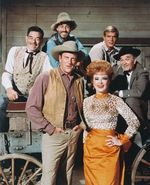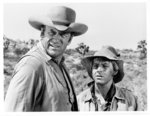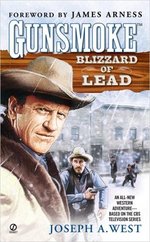Reading about Harley Jane Kozak’s TV meeting misadventures, I was reminded of a meeting Bill and I had many years ago with a Major TV Producer. We went in to pitch a series adaptation of a property he owned. We did our pitch and loved it. Said it was perfect, brilliant, incredible. Did we have any other ideas? We did. We pitched them. He nearly had an orgasm listening to them. He liked the ideas so much, that he wanted them all. He couldn’t wait to work with us and told us we’d found a home.
We called our agent immediately afterwards, still high on the thrill of such stunning success, and told him to expect a call within seconds from the Major TV Producer to make a deal. The guy didn’t call. When our agent called him and asked how meeting went, the Major TV Producer said "Eh, they didn’t really wow me."
The experience taught me to never believe anything that’s said in a pitch meeting. More than once I’ve been fooled by enthusiasm and big promises (or have totally misread what appears to be utter lack of interest and open hostility). So now, I try not to get excited or dispirited until I hear from my agent whether we’re negotiating a deal or not.
The Major TV Producer later became a Major Network Chief and, years later, called us in to meet with him and his executive team about rescuing a troubled series they had. I was hesitant about meeting him again, but we did it anyway. We went in and, after telling us he’d been fans of ours for years, he asked us was what we thought was wrong with the show. We told him what wasn’t working and what we thought should be done to fix it. And he said: "That’s exactly what I told the showrunner before I shut down his show and took it away from him. But somehow, hearing it from you, I don’t like it."
Needless to say, we didn’t get the job. He’s back to being a Major TV Producer again and sometimes I wonder if its possible to be a nice guy and still survive in this business…or whether the key to success is being a lying scum.







